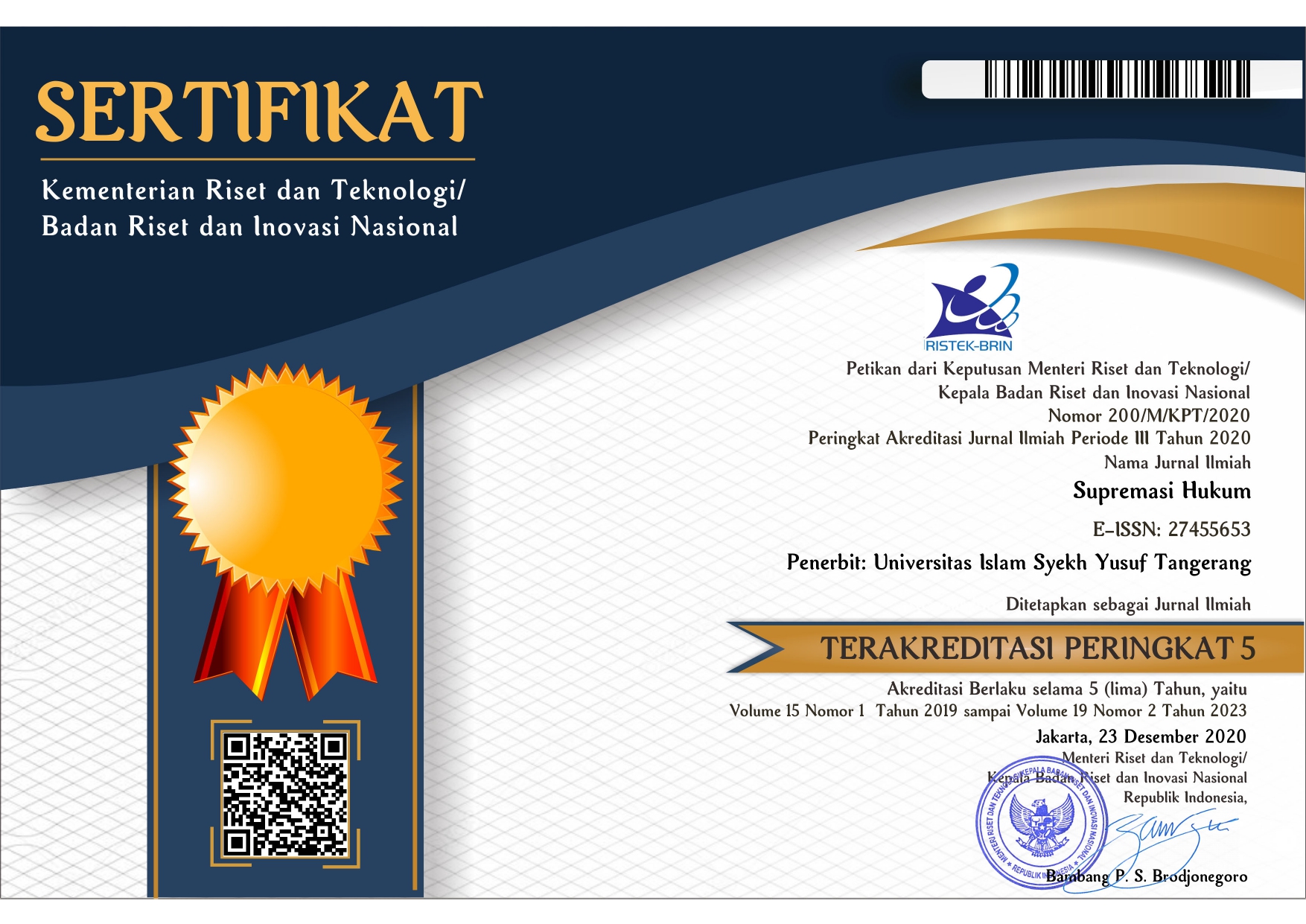PROBLEMATIKA UNDANG-UNDANG NOMOR 18 TAHUN 2017 TERHADAP HAK-HAK PEKERJA MIGRAN INDONESIA
DOI:
https://doi.org/10.33592/jsh.v18i2.2977Abstract
The challenges of changing times need serious attention regarding how to use the internet safely, especially in the world of commerce such as e-commerce without experiencing difficulties due to the unpreparedness of various aspects in Indonesia, especially the legal aspects related to electronic commerce in order to anticipate the possibility that occurs, such as cases of default between consumers. with the manufacturer. The purpose of this study is to identify how effective the consumer protection is carried out by the Indonesian state regarding consumer protection in Law Number 8 of 1999. The research method used by the author is a type of normative - juridical research, which is descriptive of literature analysis. Applying a literature and literature study approach to consumer protection. Default issues between consumers and producers are usually resolved through the courts or by alternative dispute resolution methods, such as through litigation or non-litigation efforts. The problems that occur today include the efforts of justice seekers, namely consumers who are harmed due to default on e-commerce transactions that are hindered by the considerable distance between buyers and traders. E-commerce and court processes are also time-consuming and require sophisticated mechanisms. The conclusions of this study explain the lack of effective consumer protection regulated by Law Number: 8 of 1999 when trading transactions through e-commerce in the event of a default dispute. There are still many default problems that are often encountered between consumers and producers through e-commerce when transacting.
Keywords: E-commerce, Default, Consumer
Downloads
Published
Issue
Section
License

Supremasi Hukum this site and metadata is licensed under a Creative Commons Attribution-NonCommercial-ShareAlike 4.0 International License



